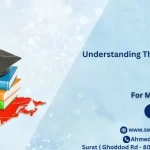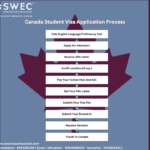
IRCC has held the fifteenth Express Entry draw of 2023. Immigration Refugees and Citizenship Canada (IRCC) invited 4,300 candidates in an all-program draw.
Candidates required a minimum Comprehensive Ranking System (CRS) score of 486. This was the second draw this month following the one on June 8. That draw invited 4,800 candidates in an all-program draw and also required that candidates had a minimum CRS cut-off score of 486.
82 occupations now eligible for category-based selection
On May 31, IRCC announced that later in the summer it would begin holding draws for Express Entry candidates who fall into six new categories. The categories are:
- healthcare
- science, technology, engineering, and mathematics (STEM) professions
- trades, such as carpenters, plumbers and contractors
- transport
- agriculture and agri-food
- Strong French speaking abilities
In these new draws, Express Entry candidates who have either the required work or language experience in selected occupations within these categories will receive Invitations to Apply (ITAs).
Healthcare occupations represent nearly half of the overall occupations eligible for category-based selection. Science, Technology Engineering, and mathematics (STEM) occupations also make up a large share.
Immigration applicants who have work experience within any of the listed occupations must also be in the Express Entry pool to be eligible for an ITA. A high CRS score is still relevant and those with the highest scores are still more likely to receive an ITA. IRCC says the categories were chosen based on discussions with the provinces, territories, and other stakeholders.
IRCC will include the results of the draws, and their success, in the yearly report to parliament. The department says categories can change from year to year.
What is Express Entry?
Express Entry is an application management system that oversees three of Canada’s most prominent economic immigration programs: The Federal Skilled Worker Program, the Canadian Experience Class, and the Federal Skilled Trades Program.
Those who meet the eligibility criteria for these programs must then upload a profile with IRCC to receive a score from the Comprehensive Ranking System. The CRS evaluates factors such as work experience, language ability, education, occupation, age, and other human capital factors. Those who receive the highest scores are the most likely to be issued an ITA in an upcoming draw.
After a candidate receives an ITA, they must submit their final application for permanent residency to IRCC within 60 days. From here, an immigration officer will review the application and decide if the candidate will become a permanent resident of Canada.




